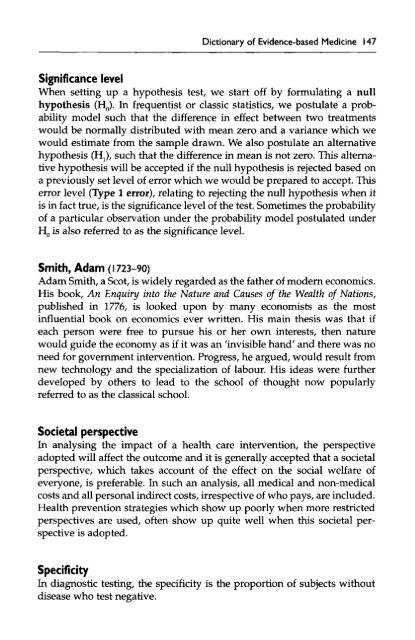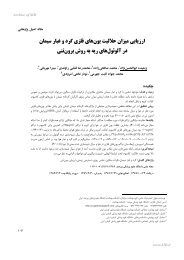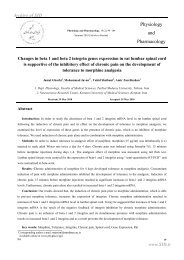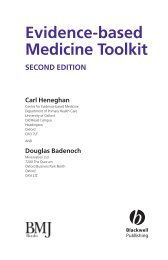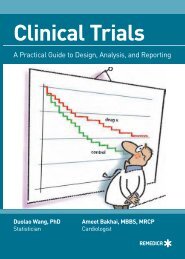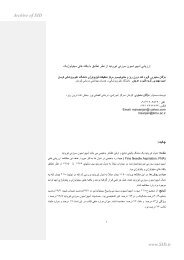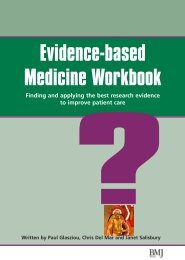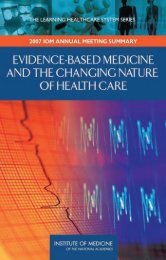Dictionary of Evidence-based Medicine.pdf
Dictionary of Evidence-based Medicine.pdf
Dictionary of Evidence-based Medicine.pdf
You also want an ePaper? Increase the reach of your titles
YUMPU automatically turns print PDFs into web optimized ePapers that Google loves.
<strong>Dictionary</strong> <strong>of</strong> <strong>Evidence</strong>-<strong>based</strong> <strong>Medicine</strong> 147<br />
Significance level<br />
When setting up a hypothesis test, we start <strong>of</strong>f by formulating a null<br />
hypothesis (H 0 ). In frequentist or classic statistics, we postulate a probability<br />
model such that the difference in effect between two treatments<br />
would be normally distributed with mean zero and a variance which we<br />
would estimate from the sample drawn. We also postulate an alternative<br />
hypothesis (Hj), such that the difference in mean is not zero. This alternative<br />
hypothesis will be accepted if the null hypothesis is rejected <strong>based</strong> on<br />
a previously set level <strong>of</strong> error which we would be prepared to accept. This<br />
error level (Type 1 error), relating to rejecting the null hypothesis when it<br />
is in fact true, is the significance level <strong>of</strong> the test. Sometimes the probability<br />
<strong>of</strong> a particular observation under the probability model postulated under<br />
H 0 is also referred to as the significance level.<br />
Smith, Adam (1723-90)<br />
Adam Smith, a Scot, is widely regarded as the father <strong>of</strong> modern economics.<br />
His book, An Enquiry into the Nature and Causes <strong>of</strong> the Wealth <strong>of</strong> Nations,<br />
published in 1776, is looked upon by many economists as the most<br />
influential book on economics ever written. His main thesis was that if<br />
each person were free to pursue his or her own interests, then nature<br />
would guide the economy as if it was an 'invisible hand' and there was no<br />
need for government intervention. Progress, he argued, would result from<br />
new technology and the specialization <strong>of</strong> labour. His ideas were further<br />
developed by others to lead to the school <strong>of</strong> thought now popularly<br />
referred to as the classical school.<br />
Societal perspective<br />
In analysing the impact <strong>of</strong> a health care intervention, the perspective<br />
adopted will affect the outcome and it is generally accepted that a societal<br />
perspective, which takes account <strong>of</strong> the effect on the social welfare <strong>of</strong><br />
everyone, is preferable. In such an analysis, all medical and non-medical<br />
costs and all personal indirect costs, irrespective <strong>of</strong> who pays, are included.<br />
Health prevention strategies which show up poorly when more restricted<br />
perspectives are used, <strong>of</strong>ten show up quite well when this societal perspective<br />
is adopted.<br />
Specificity<br />
In diagnostic testing, the specificity is the proportion <strong>of</strong> subjects without<br />
disease who test negative.


